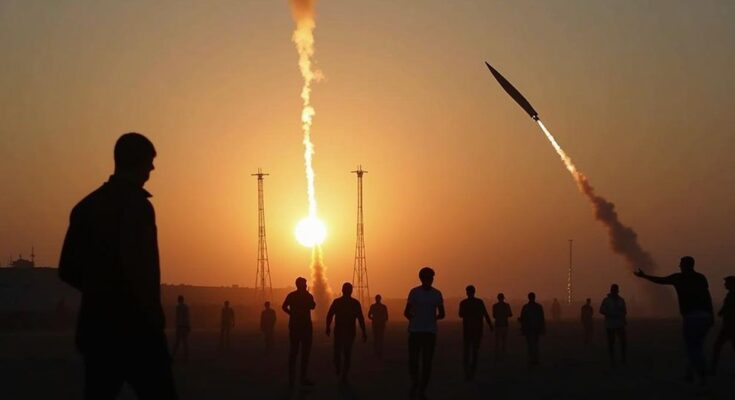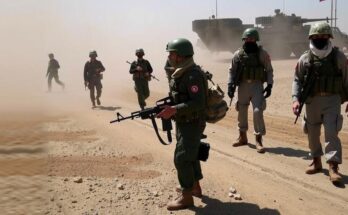Iran’s missile attacks on Israel have prompted a firm response from Israeli officials, with escalations in military actions reported, particularly in Lebanon. Analysts warn of increasing tensions and the dangers of further conflict, highlighting the role of U.S. policy in the current crisis.
In the aftermath of Iran launching a barrage of ballistic missiles at strategic military targets in Israel, Israeli Prime Minister Benjamin Netanyahu has announced that Israel will retaliate. Ryan Costello, Policy Director at the National Iranian American Council (NIAC), expressed grave concerns about the current tensions in the Middle East, describing it as a “very dangerous dynamic” where each party strives to establish new red lines, leading to an escalation of hostilities. Costello criticized the belief that heightened violence could lead to de-escalation, particularly referencing a recent report from Axios which noted that the Biden administration endorsed Israel’s strategy of “de-escalation through escalation” against Hezbollah. He further remarked, “The saying is: An eye for an eye makes the whole world go blind,” stressing the peril of continued aggressive actions between the conflicting parties. He also implicated President Biden’s unwavering support for Netanyahu—evident in his “blank check” policy—which he believes has incited Iranian aggression. Costello urged for U.S. leadership to intervene and prevent further destabilization. As tensions rise, the Israeli military has urged residents in two neighborhoods of southern Beirut to evacuate, citing their proximity to Hezbollah positions. Concurrently, Israel has intensified its military operations in Lebanon, resulting in approximately 55 casualties in a single day, while the total number of fatalities over the past year approaches 2,000, a figure surpassing the death toll from the 2006 war. Recent attacks in the afternoon targeted two residential buildings near central Beirut, leading to three reported deaths. The international community is now closely monitoring the situation, particularly in light of the Iranian assault on Israeli territory. U.S. Republican House Speaker Mike Johnson has called for a decisive response to Iran, criticizing what he perceives as the Biden administration’s failure to manage foreign relations effectively. “We pray for their safety and urge the Biden-Harris Administration to deliver a strong message to the Iranian regime that this unjustified violence and terror must end,” Johnson stated. He further contended that the increasing aggressiveness of adversaries reflects weaknesses in current U.S. foreign policy, advocating a return to a stringent approach towards Iran, highlighting the necessity for economic and military repercussions for Iranian actions. The grim reality in Lebanon has been reinforced by the Lebanese Health Ministry’s report of escalating casualties due to Israeli assaults. As the situation continues to deteriorate, Al Jazeera remains committed to providing ongoing coverage of these developments. As events unfold, all attention is directed towards the potential ramifications of the Iranian missile strikes and the ensuing Israeli response, with the world awaiting further developments in this volatile landscape.
The current crisis in the Middle East underscores rising tensions between Iran and Israel, ignited by Iran’s missile strikes targeting Israel. The situation has escalated recently, with various nations involved in military actions and retaliations, raising fears of a broader conflict. The U.S. government’s role has also come under scrutiny, especially in terms of its support for Israel and its diplomatic stance towards Iran, which some critics argue is provoking further aggression.
In summary, the escalating violence between Iran and Israel poses a significant threat to stability in the Middle East. The responses from various leaders and analysts suggest a potential for further escalation if diplomatic efforts are not prioritized. The apparent cycle of violence underscores the urgent need for effective mediation to prevent catastrophic outcomes in the region.
Original Source: www.aljazeera.com




